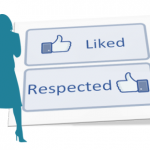 There has long been a debate over whether it’s desirable to be friends with your colleagues or whether it’s sufficient to be respected by them. As our workplaces are increasingly social affairs where collaboration is fundamental to success, this debate has taken on a new level of importance.
There has long been a debate over whether it’s desirable to be friends with your colleagues or whether it’s sufficient to be respected by them. As our workplaces are increasingly social affairs where collaboration is fundamental to success, this debate has taken on a new level of importance.
A recent report by Globoforce suggests that a tightly bonded workforce is a definite plus.
“There is … a strong argument in this data for companies to be more thoughtful about the cultures they are creating,” the report said, “and to actively promote the development of work friendships and emotional connections among employees,” it suggests.
Despite this, and various other, hints towards a more friendly approach to management, there is still a perception that many managers would rather remain respected than liked. After all, it’s safer to retain a professional distance, isn’t it? You can discipline people and all that if you’re not too close to them.
The thing is, that approach seldom really works. It might seem logical to think that being hard on an employee might goad them into better performance, but generally all it does is cause stress, which seldom helps anyone.
Niceness matters in collaborative workplaces
This is particularly so in environments where power is something that has to be earned rather than bestowed via hierarchy. A recent study published by Yale looked at the role identity plays in the formation of groups, and found that our selection process isn’t particularly ‘deep’ whatsoever.
It found that the groups we form don’t tend to coalesce around worthy topics such as purpose or principals, nor even do they emerge around more traditional identities surrounding race or religion. Instead, the groups we form boil down, they say, to nothing more than whether people are nice to us or not. From this humble beginning, we then tend to like friends of their friends, with the adverse that we dislike enemies of our friends.
“It is hard to tease out root causes of group formation because observable differences such as race or language may arise because people already live in groups,” said David Rand, assistant professor of psychology at Yale and co-lead author of the study. “What we show is that you can strip away all those factors, and groups will still emerge.”
It’s a theme that Adam Grant based his book around last year, and he highlighted several studies highlighting the rise in status within a group that coincides with being nice to one another. You see, with niceness comes trust, and with trust comes collaboration.
So next time if you’re asked the question about whether it’s better to be liked or respected, hopefully you’ll come down on the site of ‘liked’.
I always try and go for being liked rather than simply respected. I think that pays off in the long-term.